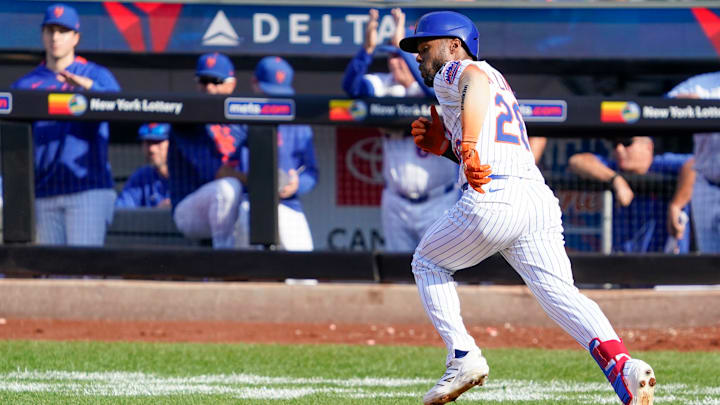As the calendar turned to July, the New York Mets, firmly in the hunt for a postseason spot, sought to bolster their outfield defense and add a veteran presence to their lineup. Their solution was the acquisition of former All-Star center fielder Cedric Mullins from the Baltimore Orioles. The addition would provide stability up the middle and speed at the bottom of the order. However, as the season has progressed, the Mullins acquisition has proven to be a catastrophic failure, a move that, instead of solidifying a playoff berth, may have single-handedly torpedoed it.
Since donning the blue and orange, Mullins has been a black hole in the Mets' lineup. In New York, he has posted a woeful wRC+ of 69, a figure that is 31% below league average. His defense, long considered his calling card, has also been a disappointment. While his Statcast Outs Above Average (OAA) with the Mets is a respectable +2, that number fails to capture the magnitude of his recent defensive miscues. Beyond the underwhelming statistics, two colossal mental errors in a pivotal late-season series against the Washington Nationals have left the Mets' playoff hopes hanging by a thread, turning what should have been a celebratory final homestand into a waking nightmare for the Flushing faithful.
A weekend to forget for Cedric Mullins
The first of Mullins' crippling gaffes occurred on the second game of the series, in a game the Mets desperately needed to win to maintain their slim lead in the Wild Card race. With the score tied in the top of the 11th inning, Nationals outfielder Daylen Lile hit a deep drive to center field. Mullins, breaking back on the ball, appeared to have a play. He leaped at the wall, but the ball sailed over his outstretched glove, caroming off the wall and rolling toward right-center field.
"It's a tough one there, but once you realize that you have no chance on that play, maybe you give yourself a better chance to play it off the wall"
— SNY (@SNYtv) September 20, 2025
Carlos Mendoza talks about how Cedric Mullins played the ball on Daylen Lile's inside-the-park home run in the 11th inning: pic.twitter.com/ynsb0SWw0s
Mullins' decision to go for the heroic catch instead of playing the carom proved disastrous. "First thought was make a play on the ball," Mullins said after the game. "Once I realized I wasn't going to have a play, tried to stop myself to be able to read it off the wall, but just got on me pretty quick." By the time he recovered, Lile was rounding third, completing a go-ahead inside-the-park home run. The play was a gut punch to the Mets and their fans, a moment of indecision that snatched defeat from the jaws of victory. In the bottom half of the inning, Mullins led off with a pop-up, sealing the Mets' fate in a game they should have won.
As if the defensive blunder on Saturday wasn't enough, Mullins compounded his disastrous weekend with an equally egregious mistake on the basepaths on the final game of the series. In the bottom of the third inning, with the Mets trailing 3-0, Mullins hit a sinking liner to left field that drove in a run. However, as Nationals left fielder Daylen Lile went down with an injury after attempting a diving catch, Mullins stood and watched from first base.
Instead of taking the extra base, which would have put him in scoring position with no outs, Mullins remained at first. After a lengthy injury delay, he was promptly doubled off on a line drive by the next batter, Francisco Lindor, killing what could have been a game-tying rally. It was a stunning lack of situational awareness, a mental lapse that is inexcusable for a player of his experience. The Mets would go on to lose the game 3-2, and with it, their control of their own playoff destiny.
Ultimately, in a season defined by missed opportunities, the Mets' trade for Cedric Mullins may ultimately be remembered as the one that cost them everything. The trade will be remembered as a miscalculation by the Mets' front office, a desperation move that backfired in the most spectacular fashion. Beyond the anemic offensive production and the season-altering gaffes, his performance has been a case study in failing to rise to the occasion. In the harsh spotlight of a New York pennant race, where every play is magnified and mental toughness is paramount, Mullins has wilted. Some players thrive under pressure; others are exposed by it. It has become painfully clear that Cedric Mullins, for all his past accolades, was simply not made for New York.
